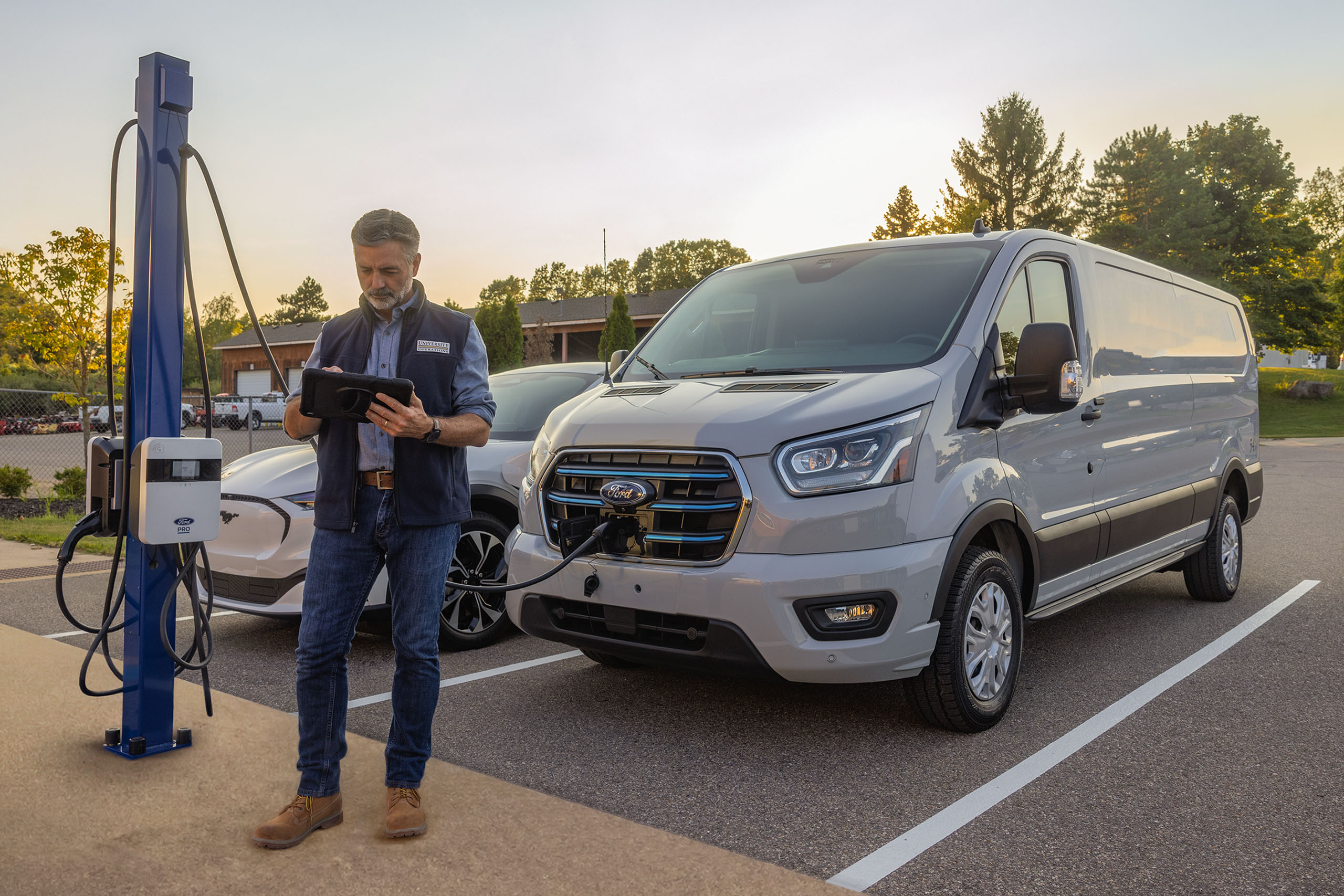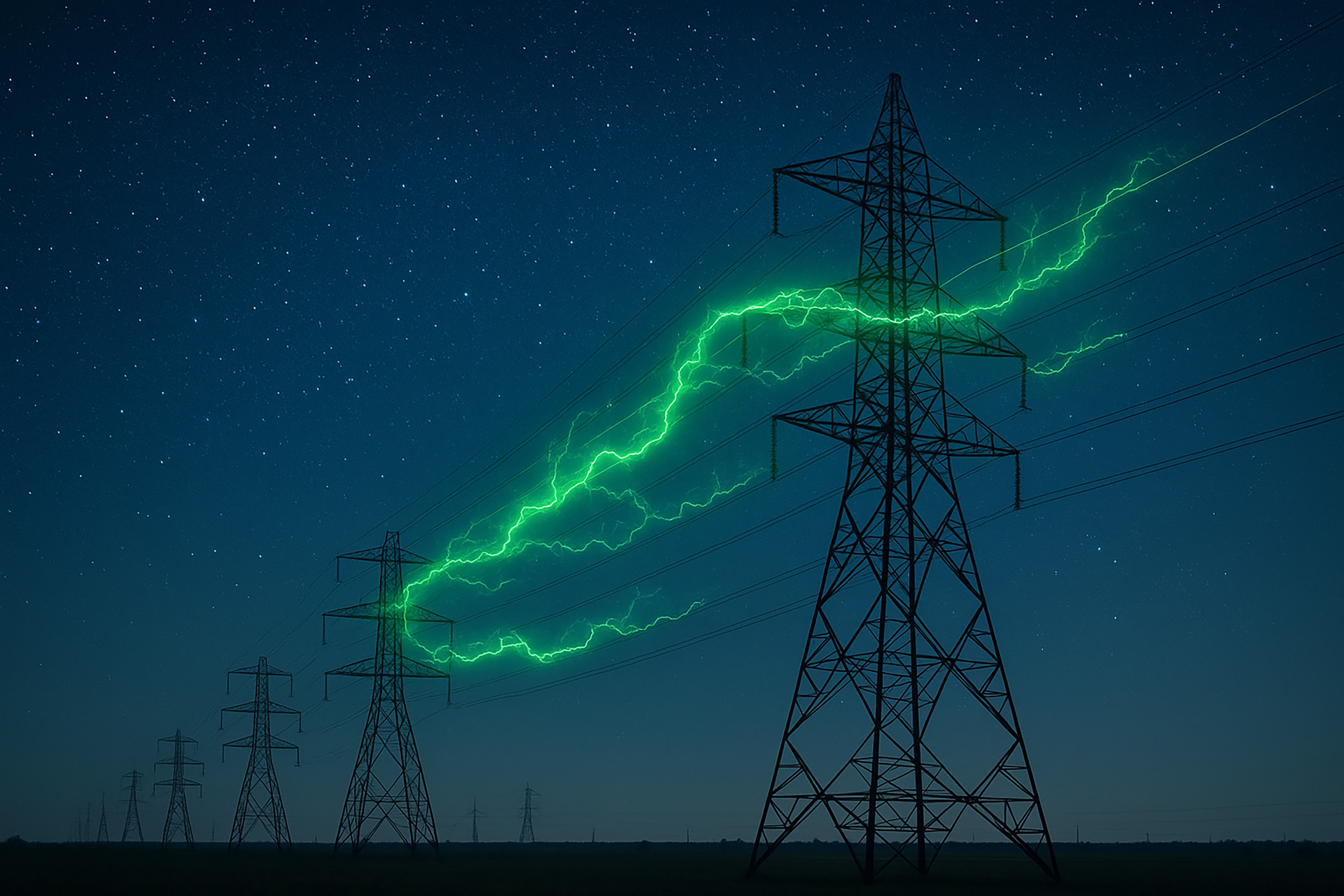
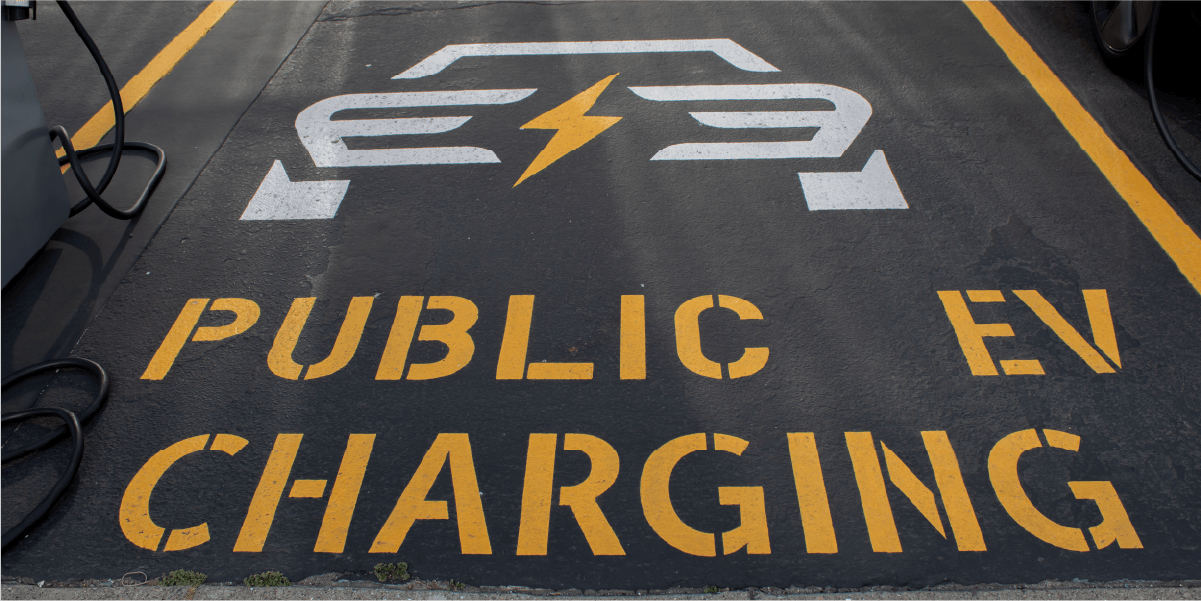
Thinking about installing a commercial EV charging station? There’s no better time to do so: By 2030, more than 18 million electric vehicles (EVs) will be on the road in the U.S., according to the Edison Electric Institute. And those EVs will require an estimated 9.6 million charging ports.
Installing EV stations now will put your business in a position to reap numerous benefits and value-creation opportunities ahead of your competition. However, installing on-site EV chargers is a complicated undertaking—your organization can benefit from a strategic partner like Future Energy to help guide you through the process.
Commercial EV Charging Station Types and Costs
There are three different types of EV charging units available—level one, level two, and level three. Each type has different costs and charging capabilities. But businesses usually gravitate toward level-two chargers, which provide the right balance between cost and charging speed.
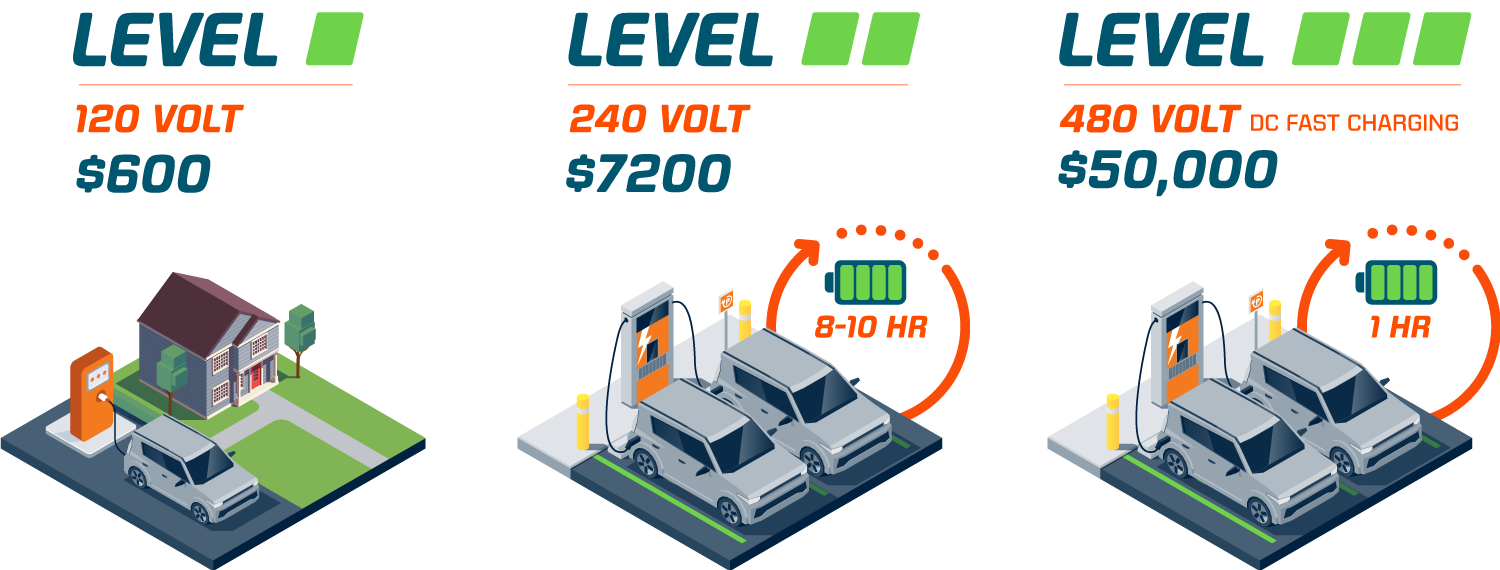
Level one: As a residential charging station, a level-one charger costs around $600 and uses a dedicated 120-volt circuit. With this charging station, a driver can fully charge a car at home within 24 to 40 hours.
Level two: The most common type of commercial EV charging station, level-two chargers feature two ports running on 240-volt circuits. Level-two chargers cost around $7,200 and require between eight and 10 hours to charge a car fully.
Level three: Otherwise known as direct-current (DC) fast chargers, these robust industrial stations use 480-volt direct current to charge a car fully in about an hour. Equipment charges and upgrades to infrastructure make DC fast chargers the most expensive, at around $50,000.
The Best Electric Vehicle Charging Station for Your Business
Choosing the right EV chargers for your business is crucial. Future Energy has partnered with ChargePoint, the world’s leading network of electric car charging stations, to create the next step in EV mobility solutions for businesses. ChargeParc™ is a complete turnkey environment that combines first-rate chargers from ChargePoint with exclusive, intelligent software from Future Energy called Interface.
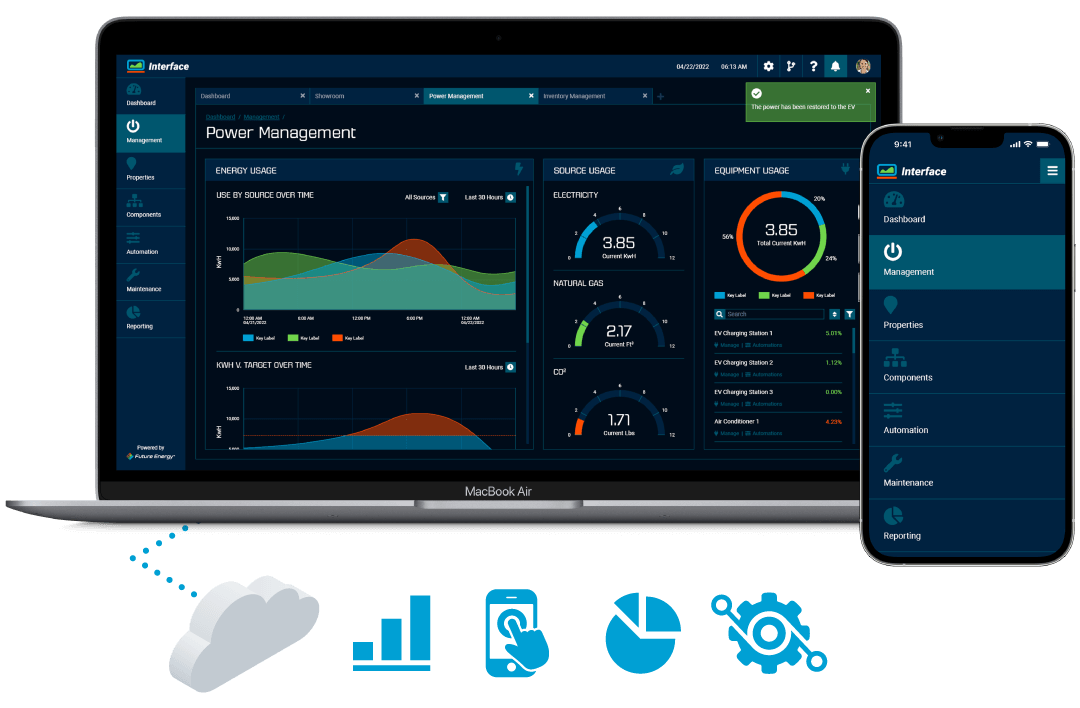
Interface maximizes value from data capture and management. It connects outside EV charging stations with all existing intelligent devices and systems on your property. And it displays data from both environments on a single visual dashboard for clear data monitoring.
Interface can support numerous use cases. For instance, its resource analytics and control features proactively alert you when you are close to peak load demand and advanced energy modeling, helping you save on energy costs.
Installing Your Electric Car Charging Stations Step-by-Step
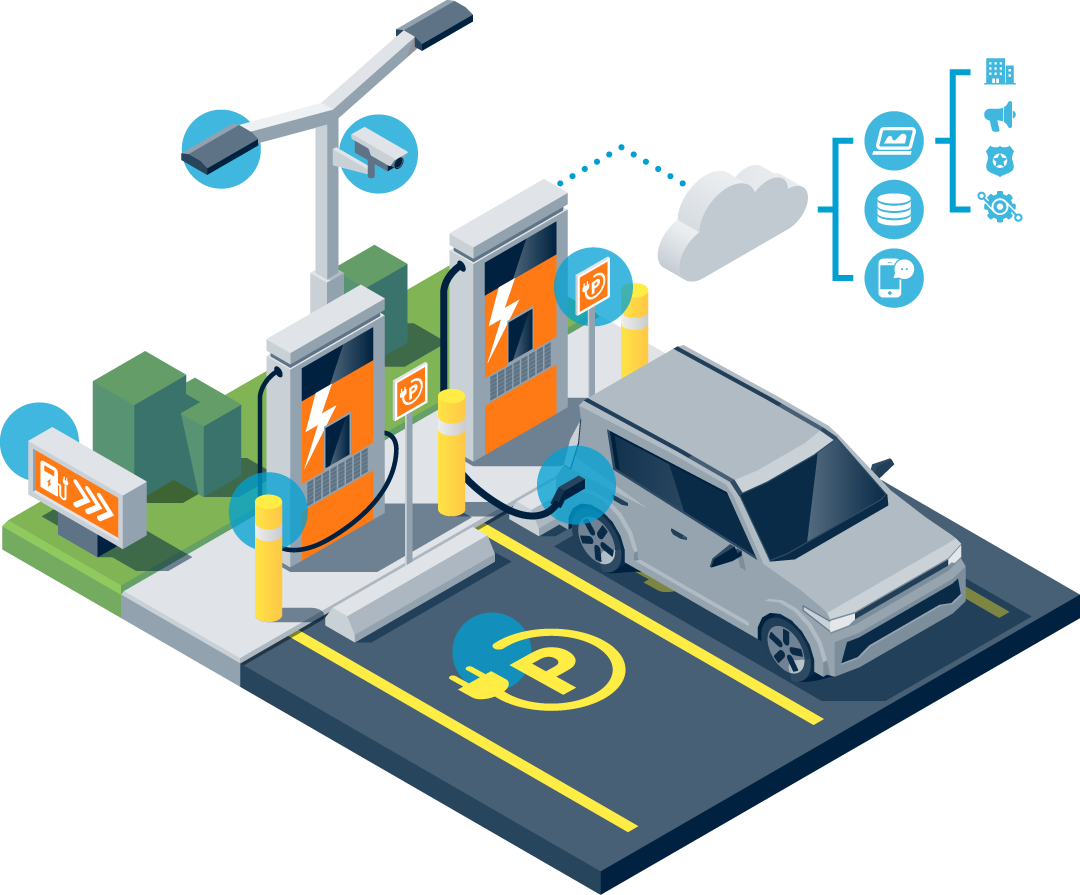
Installing a commercial EV charging station requires coordinating numerous contractors, understanding utility company requirements, and identifying available tax credits and incentives to reduce costs. That’s why working with an experienced, approved partner like Future Energy can help streamline the process and ultimately save money.
Step One: Site Analysis
Installing commercial EV charging stations begins in the boardroom with a discussion about your company’s goals and expectations. Then Future Energy account executives engage with your team for a site analysis, part of which covers the following:
- Site location: Which location on your property is ideal to install electric car charging stations?
- Lighting and security: Does the site meet lighting and security requirements?
- Electrical infrastructure and utility needs: Is the electrical service adequate? Or does your utility company need to bring in additional power?
Step Two: Infrastructure Planning
An infrastructure analysis precedes installations. At this stage, Future Energy account executives work with electrical contractors to draft a one-line diagram, a single-page document that represents the electrical distribution for your site.
Additionally, account executives may convene with contractors to go over other infrastructure requirements, such as boring holes, pouring concrete, trenching, and landscaping.
Step Three: Utility Assessment
Next comes the utility assessment. Future Energy helps your business identify and procure grants that can cover up to 90% of construction costs for your EV charging stations. These incentives include federal tax breaks, state and local credits, and utility company rebates.
Available incentives vary widely by state and local jurisdiction as well as by utility company. Having a partner like Future Energy who is familiar with the landscape is key to procuring all available funds.
Step Four: Environment Integration
A number of factors go into building the right EV charging solution for a given location. The type of EV charger—level two or three in a commercial environment—is instrumental. Furthermore, the environment must feature a safe, well-lit, comfortable area for drivers to charge. All of these elements combine to create a final proposal that details the solution that Future Energy recommends for your business.
Step Five: Final Preparation and Installation
To obtain all available incentives for an electric vehicle charging station, your business must prepare the necessary documents to reserve funding for the project. This paperwork may include filings with the Environmental Protection Agency, state and local governments, or the utility company.
Once you receive approval, it’s time to schedule the project and order the necessary materials. At the site, engineers complete the infrastructure work: running conduits, piping, and electrical wires as necessary.
At this point, contractors install light poles and other fixtures, set security cameras, and complete all extra construction in and around the charging area. In addition, the software deployment team at Future Energy installs all the necessary routers and other equipment to connect all of your property’s smart devices and systems to Interface.
Then the team conducts training on Interface. The team shows you how to use Interface to help optimize your business’s energy management and support other use cases. Finally, the utility walkthrough takes place, and you file the last of the paperwork.
Finding the Right Partner
Installing a commercial EV charging station can be complicated if you try to manage it yourself. Future Energy offers concierge-style service, walking you through every step from start to finish. With Future Energy, you hire just one company to coordinate all the contractors, organize and file the appropriate paperwork, and follow up with utilities. Find out how Future Energy can help guide your company through the process.

